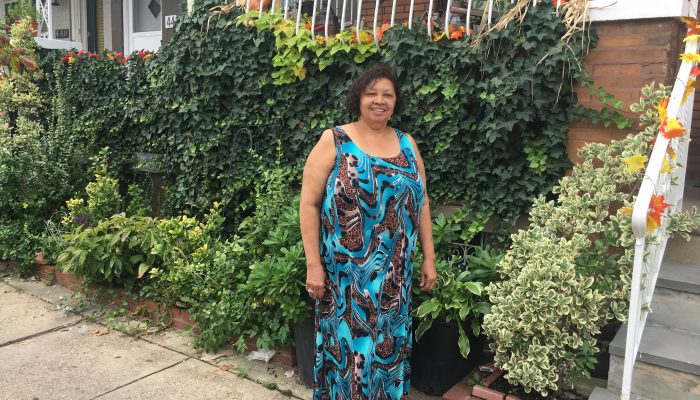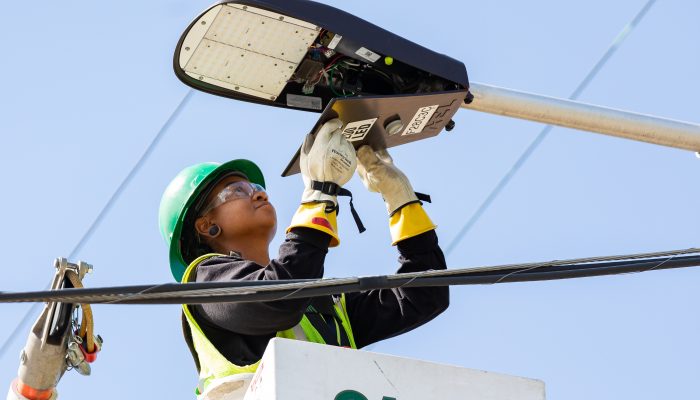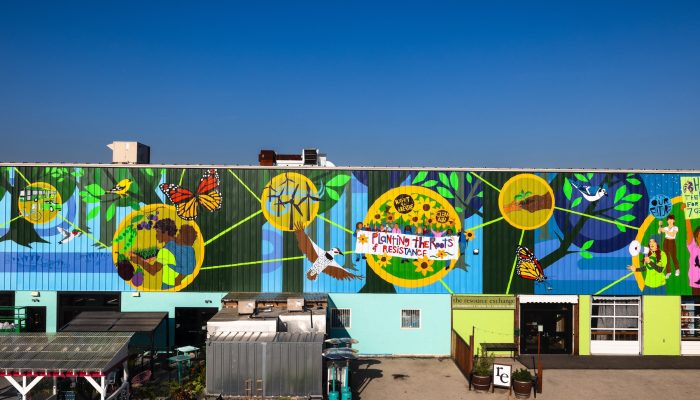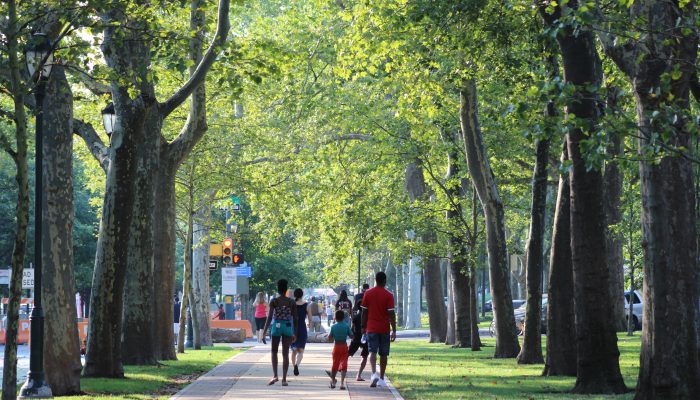This edition of From the Ground Up! celebrates #WomensHistoryMonth by focusing on the efforts of Catalina Hunter, a resident of Hunting Park. Read on to learn how Catalina and her neighbors worked together to improve quality of life in their community.
A Call to Action
When a small waste processing business grew under their noses, a group of Hunting Park residents knew they had to do something. They had already noticed the truck traffic barreling through residential streets, the bad smells, and the rodents. They also knew that their community has high rates of asthma which could only be made worse under these conditions.
Led by Catalina Hunter, a long-time resident of Hunting Park, residents and their allies successfully organized against what was infamously referred to as Mount Cayuga and other issues stemming from the waste facility in their neighborhood. After finding out about a zoning request to extend the facility’s operations to 24 hours, a small group of residents attended zoning meetings held by their local Registered Community Organization. Unifying as a group, they printed shirts and engaged the surrounding community to create a list of demands.
What is Mount Cayuga?
Mount Cayuga was not a mountain or a grassy hill, rather, it was a large pile of materials like wood, mattresses, dirt, and construction and demolition waste. Awaiting processing, Mount Cayuga loomed over the fence line of the facility. At the time, many Hunting Park residents could see the tall grey mountain from their homes, especially those living on Cayuga street between 9th street and American avenue. In fact, the grey pile of stuff was such a fixture in the community that residents gave it a nickname. “Mount Cayuga” became a symbol of a constant struggle that did not appear to have an end.
Before learning about the zoning meetings, Catalina was not sure where to start. Instead of letting that stop her, she found ways to speak to those who could at least point her in the right direction. She talked to Philadelphia Police’s Highway Patrol Division and although the issue fell outside of their jurisdiction, Catalina informed them that the large trucks parked illegally on residential streets should be ticketed. Next, she connected with a group of college students from Drexel who could take air quality samples to back up residents’ claims about the environmental and health impacts of the facility. She then met with a lawyer who could connect the group to additional resources to help them tell their stories.
Words of Advice
In the end, the facility’s request to shift to 24-hour operations was denied. Without the hard work, thoughtfulness, and dedication of the residents, this outcome may have been unlikely. Although they recognize their work is not done, the residents’ organizing efforts have had lasting impacts. Trucks headed to the facility no longer drive down small, residential streets and Mount Cayuga can no longer be seen from outside of the facility.
When Catalina and her friends and family were asked to share advice to others facing injustices and other challenges in their communities, they gave the following advice:
- Just do it! Stand up for what you know is right. Act because you are compassionate. The best leaders do things from a place of love and understanding. Actions motivated by anger, judgement, and hatred will only get those same emotions in return.
- One’s actions lay roots which then grow deeper, so, it is important to address issues immediately. It’s also important to work in collaboration with others. Many seemingly small actions can blossom into a full-on transformation. Smaller acts also encourage people to dream big. In the end, you may accomplish something you never thought was possible.
Check out Reclaiming Hunting Park, a video Hunting Park residents and their allies put together about environmental justice organizing in their neighborhood.




